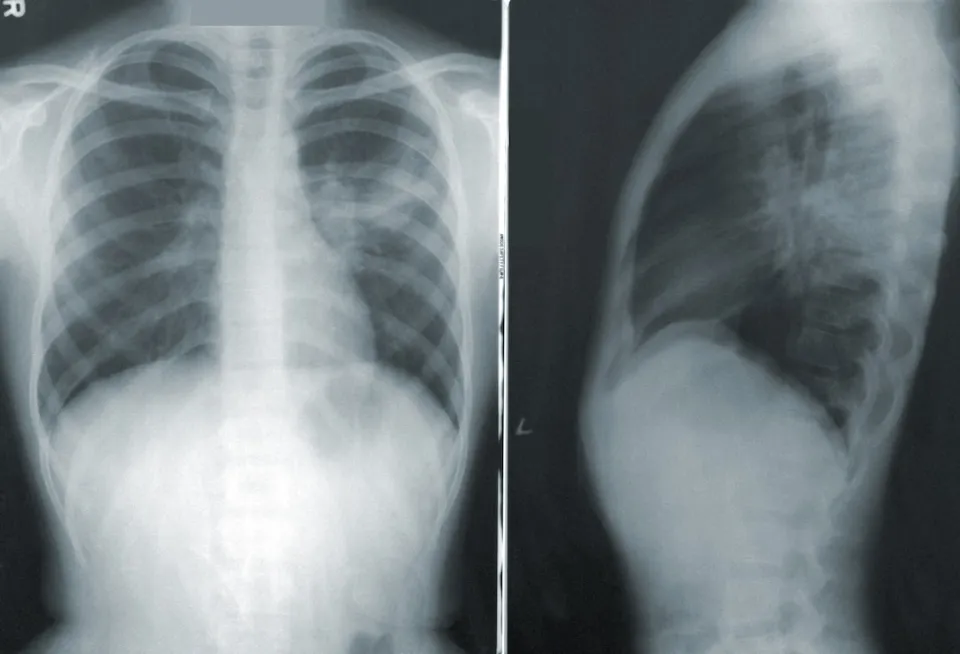Double pneumonia, sometimes called “bilateral pneumonia,” refers to any type of pneumonia that affects both lungs at the same time. The most typical kind of pneumonia that develops in the alveoli is a part of double pneumonia. Another subtype of pneumonia known as bronchopneumonia is also referred to as double pneumonia because it affects the bronchi and airways in both lungs.
What you should know about pneumonia that affects both lungs, including the most typical signs and symptoms, the most probable causes, and the typical medical treatments, is provided below.
What is Double Pneumonia?
A lung infection known as double pneumonia affects both of your lungs. The infection inflames the air sacs in your lungs, or the alveoli, which fill with fluid or pus. Breathing becomes challenging due to this inflammation.
Bacteria and viruses are the most frequent causes of pneumonia. Pneumonia can also be brought on by a fungal or parasitic infection.
The number of lung lobe segments that are infected can also be used to classify pneumonia. The disease is likely to be more severe if more segments, whether in one lung or both lungs, are infected.
By contacting infectious viruses or inhaling infectious air droplets, pneumonia can be contracted. Any pneumonia has the potential to be fatal if it is not treated.

Symptoms of Double Pneumonia
Similar to pneumonia that affects one lung, double pneumonia exhibits similar symptoms. Symptoms of double pneumonia may include:
- Chest pain when coughing or breathing
- Fever
- Chills
- Shortness of breath
- Headache
- Muscle pain
- Low blood oxygen levels
- Extreme tiredness
- Fast heart rate
- Low blood pressure
- A poor appetite
- Coughing up mucus or phlegm
- Nausea and vomiting
- Confusion or disorientation in older adults
Having double pneumonia doesn’t necessarily mean the symptoms will be twice as bad as pneumonia in one lung, but in many people, they are more severe. This is because symptoms such as chest pain may be felt on both sides rather than one.
What Causes Double Pneumonia?
According to Dr. Wayne Tsuang, a lung specialist at the Cleveland Clinic, whether you get pneumonia in one lung or both lungs is “largely due to chance.” This holds true regardless of the type of infection—viral, bacterial, or fungal.
In general, certain populations have a higher risk of getting pneumonia:
- Infants and toddlers
- People over 65
- People with weakened immune systems from disease or some medications
- People with diseases such as asthma, cystic fibrosis, diabetes, or heart failure
- People who smoke or abuse drugs or alcohol
Is Double Pneumonia Serious?
A double case of pneumonia could be more serious than one-lung pneumonia. However, it depends on a few factors, such as:
- How many segments of the lungs are affected
- Whether a person has underlying risk factors
If only one segment in each of the two lungs is affected, double pneumonia may be less severe than if multiple lung segments in one or two lungs are affected. Like with single pneumonia, double pneumonia may necessitate hospitalization in order to receive a higher level of care and breathing assistance. Most people, however, can fully recover from double pneumonia at home. Double pneumonia can lead to complications, such as the following:
Pleural Effusions
Pleural effusions are sometimes called “water on the lungs.” The narrow space between the lungs and chest wall becomes overly fluid-filled, causing this to happen.
Sepsis
Sepsis, sometimes known as “blood poisoning,” is when the lung infection spreads into the bloodstream. Organ failure may result from sepsis, a potentially fatal medical emergency. Early treatment for double pneumonia can help avoid sepsis.
Organ Failure
Pneumonia can lead to the failure of organs to function correctly, such as:
- Kidney failure
- Respiratory failure
When there are low levels of oxygen in the blood, this usually indicates that a person needs a ventilator to help them breathe.
Pleurisy
When the membrane that lines the chest wall and lungs swell, pleurisy results. Pleurisy can cause chest pain during a deep breath or cough and increase the risk of getting water in the lungs.

How to Treat Double Pneumonia?
The initial cause of your pneumonia will typically determine how to treat it, according to Dr. Sood said. Here’s a breakdown of possible treatments:
- Antivirals: Antiviral drugs like Remdesivir may be helpful in dire circumstances, according to Dr. Casciari said.
- Breathing support: “Patients with pneumonia in both lungs are more likely to need supplemental oxygen or possibly support from a mechanical ventilator,” Dr. Monaco added.
- Antibiotics: “If someone is relatively healthy and they get bacterial pneumonia, we can usually treat them as an outpatient with antibiotics,” You’ll require IV antibiotics in the hospital in more serious circumstances, according to Dr. Sood.
- Antifungals: Fungal pneumonia may be treated with an antifungal drug, according to Dr. In addition, similar to antibiotics, if you have a more serious case of double pneumonia, you might receive the drug via an IV.
- Rest: Healthcare providers usually recommend rest and fluids if you have viral pneumonia. You might not need any medication if you have viral double pneumonia, Dr. Panettieri explained.
As far as prognosis goes, it’s important to note that pneumonia is one of the top 10 causes of death in the United States, per the Centers for Disease Control and Prevention—and “it’s serious, but even worse when it involved both lungs,” Dr. Casciari cautioned.
Conclusion
The majority of healthy people with double pneumonia can typically recover with appropriate care in 3 to 5 days. If you don’t have any underlying health issues, you should be able to return to your regular activities in about a week. Fatigue and mild symptoms (such as a cough) may last longer.



